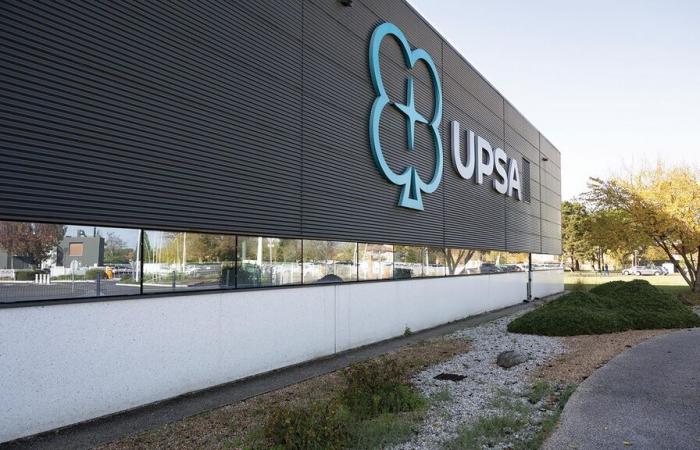An unprecedented agreement. The drug manufacturer Upsa obtained from the State a two-year moratorium on the planned price reduction for its paracetamol in exchange for the production in France of two drugs. The manufacturer, a competitor to Sanofi's Doliprane with its paracetamol brands Efferalgan and Dafalgan, plans to produce these two drugs in Agen (Lot-et-Garonne) from 2026.
In detail, the State submitted to the industrialist a list of around thirty essential molecules opening up to an agreement. The daily Les Echos reveals that the production of two molecules would be considered by the manufacturer: pregabalin, used in the treatment of neuropathic pain and epileptic seizures, and the antiepileptic lamotrigine.
This freeze in the prices of paracetamol should give some breathing room to the Upsa site in Agen, where 45% of the production of the active ingredient is intended for France. The factory has set itself the objective of increasing its production of paracetamol to 450 million boxes produced each year, compared to 320 million currently, again according to Les Echos. The company thus hopes to approach the cumulative production of Sanofi factories dedicated to Doliprane, in Lisieux (Calvados) and Compiègne (Oise), which exceeded 450 million boxes in 2023.
New moratorium on drug production
This is not the first time that the State has used the weapon of a moratorium on a reduction in drug prices to reindustrialize. It had already granted, in 2021, a suspension of any further reduction in the price of paracetamol. At the same time, the two pharmaceutical giants Sanofi and Upsa had committed to long-term purchase contracts with the future factory of the pharmaceutical company Seqens. The latter must produce, from 2026, the active ingredient of paracetamol in Roussillon (Isère), which has not left a European factory since the 2000s.
To reindustrialize pharmaceuticals, the State had established, in October 2023, a list of “strategic health and industrial” drugs. To move from paper to factory outlets, the government opened a window, financed by the France 2030 plan, dedicated to financing the production of 147 “strategic” drugs. Selected from among the 450 “essential medicines”, these strategic medicines are among the most imported by France.
Among the support mechanisms, subsidies must be granted to manufacturers for these drugs, in exchange for a guarantee of supply to the territory in the event of market tension. The State has also planned to increase its purchase prices for medicines if the manufacturer is faced with an increase in costs endangering its cost price – subject to validation by the Economic Committee for Health Products (CEPS) .






